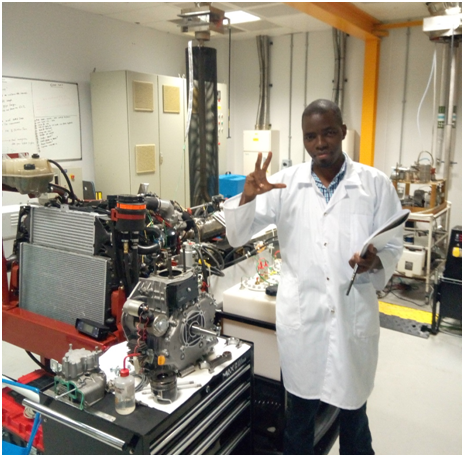UNESCO World Science Day for Peace and Development 2018
The Royal Society-DFID Africa Capacity Building Initiative (ACBI) supports 10 five-year collaborative projects through a consortia-based approach. The projects comprise UK- and Africa-based scientists researching key issues of development in low-income countries: soil science, renewable energy and water and sanitation.
Each grant funds PhD students, research costs, travel, training, and equipment. The 10 grants support 30 African partners who are based across 18 sub-Saharan African countries in almost 30 different institutions. The Royal Society-DFID Africa Capacity Building Initiative is funded with UK aid from the UK government.
On the 2018 World Science Day for Peace and Development, three ACBI PhD students have given their perspectives on how their work contributes towards local, national and international peace and development.
Working with local people
 Opio Miria, an ACBI PhD student working on converting locally available biomass resources into an alternative to diesel fuel for electricity generation at Makerere University, Uganda, highlights the need for researchers to engage local communities with novel science aiming to improve their quality of life.
Opio Miria, an ACBI PhD student working on converting locally available biomass resources into an alternative to diesel fuel for electricity generation at Makerere University, Uganda, highlights the need for researchers to engage local communities with novel science aiming to improve their quality of life.
He says: “It is a necessity since most of their livelihood and cultural beliefs are tied around biomass resources such as forests.”

